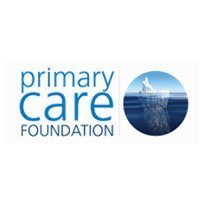Out-of-hours comparison tool launched
- 19 April 2012

Data on the quality of out-of-hours services can be easily compared by commissioners and providers using an online benchmark tool that goes live today.
The tool was developed from the fourth round of the Primary Care Federation‘s national benchmarking exercise and includes data from 104 of the 151 primary care trusts in England.
It covers more than 40 indicators including measures of cost, quality, timeliness and patient experience.
Henry Clay, director of the Primary Care Foundation, said participant providers and commissioners had gained sufficient confidence in the data to allow it to be shared for the first time in a way that allows direct comparison.
He added: “This is a significant step. There are no other areas of healthcare where direct comparison can be made by commissioners, service users and providers of such a range of performance measures, cost and patient perception.
"Nor has it been done before in a way that allows the user to take account of explanatory factors such as deprivation, organisational structure or the nature of the area.”
The benchmark does not cover NHS 111 or any users of NHS Pathways, the decision support system that will underpin NHS 111 in many areas, although the Federation is looking to do this in the future.
An accompanying report on the benchmark says the overall performance of out-of-hours services is improving and cost variations are falling.
The report recommends that commissioners look at out-of-hours services in depth to get a more detailed picture than that provided by the national quality requirements.
The report also outlines some challenges the Federation believes commissioners will face as the NHS 111 contracts come online.
It says commissioners need to look across episodes of care and says the way NHS 111 contracts are being put out to tender makes its highly likely that care will be split across different information systems, making it “much more difficult but not impossible” to compile information.
The Federation says current lack of consistency in coding also makes it difficult to interpret data on potentially useful measures such as how many patients are being referred on or are choosing to go to hospital or call 999.
It adds: “Our message to commissioners and providers on this measure is a simple one.
"If you believe that there are opportunities for the out-of-hours service to reduce attendance at A&E then the first thing that you should do is ensure reliable recording of such cases.”
The report says there is a wide variation in the number of calls handled, when telephone advice is compared to attendances at primary care centres.
However, it says patients highly rate some out-of-hours services that offer a large proportion of telephone advice, “challenging the assumption that patients prefer face-to-face consultations."
It also says the introduction of NHS 111 might be expected to reduce variability in the percentage of callers receiving telephone advice and the percentage being referred to hospital, because it uses a consistent computer decision support tool.
However, it says the way the tool is used in practice will influence case handling “and without monitoring and sharing of good practice there may still be considerable variation between individuals.”
The report also “strongly recommends” that commissioners look to change how they measure speed to response as NHS 111 contracts come online and call handlers are empowered to carry out a clinical assessment using NHS Pathways.
It says it makes much more sense to measure the end of the “definitive clinical assessment” rather than the start.
The Federation adds that it believes its benchmarking system will change as NHS 111 comes on stream.
It is hoping to work with the College of Emergency Medicine at comparing similar measures for A&E departments and urgent care centres to provide a fuller picture of the operation of the urgent care system.




